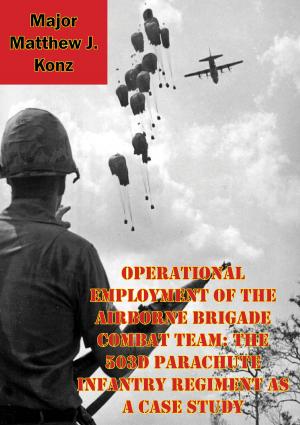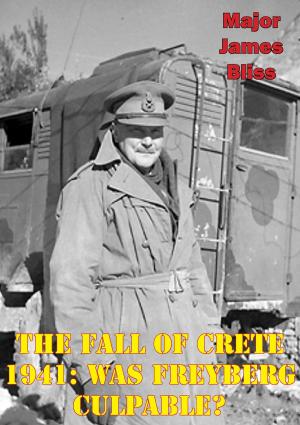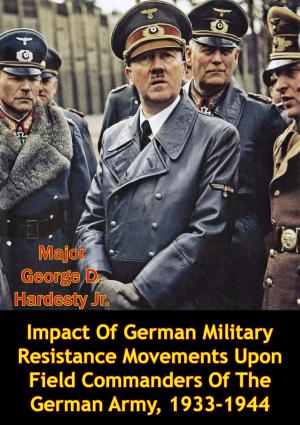Kasserine: The Myth and Its Warning for Airland Battle Operations
Nonfiction, History, Germany, European General, Military, United States| Author: | Lt.-Col. Alan M. Russo | ISBN: | 9781786250797 |
| Publisher: | Lucknow Books | Publication: | November 6, 2015 |
| Imprint: | Lucknow Books | Language: | English |
| Author: | Lt.-Col. Alan M. Russo |
| ISBN: | 9781786250797 |
| Publisher: | Lucknow Books |
| Publication: | November 6, 2015 |
| Imprint: | Lucknow Books |
| Language: | English |
The paper traces the history of air and ground forces during the February 1943 battle of the Kasserine Pass. It briefly outlines the state of training of the Army and its Air Corps and their procedures for battle coordination. The report highlights the antagonisms between air and ground advocates—each attempting to wrest control of air-ground coordination responsibilities—and shows that these antagonisms coupled with the air advocates’ desire for self-determination of air power led to centralized control of tactical air power under the guise of lessons learned in battle at Kasserine.
The paper shows that the close coordination and affiliation developed between air and land forces in World War II apparently has dissipated, and that this dissipation may cause a lack of effective air support to ground forces fighting on the modern battlefield. It suggests that the Air Force is not sufficiently concerned with how, and to what effect its support of the Army will be conducted.
The paper traces the history of air and ground forces during the February 1943 battle of the Kasserine Pass. It briefly outlines the state of training of the Army and its Air Corps and their procedures for battle coordination. The report highlights the antagonisms between air and ground advocates—each attempting to wrest control of air-ground coordination responsibilities—and shows that these antagonisms coupled with the air advocates’ desire for self-determination of air power led to centralized control of tactical air power under the guise of lessons learned in battle at Kasserine.
The paper shows that the close coordination and affiliation developed between air and land forces in World War II apparently has dissipated, and that this dissipation may cause a lack of effective air support to ground forces fighting on the modern battlefield. It suggests that the Air Force is not sufficiently concerned with how, and to what effect its support of the Army will be conducted.
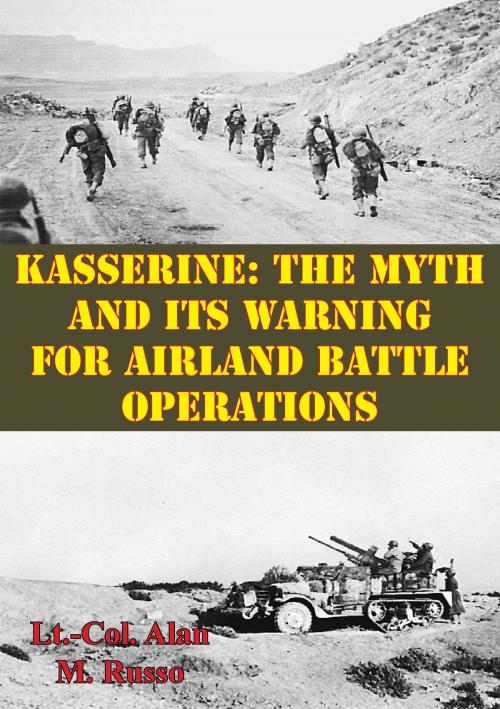
![Cover of the book Gallipoli [Illustrated Edition] by Lt.-Col. Alan M. Russo](https://www.kuoky.com/images/2012/april/300x300/9781782890966-owHm_300x.jpg)
![Cover of the book A Private In The Guards [Illustrated Edition] by Lt.-Col. Alan M. Russo](https://www.kuoky.com/images/2015/november/300x300/9781786255327-SjeE_300x.jpg)
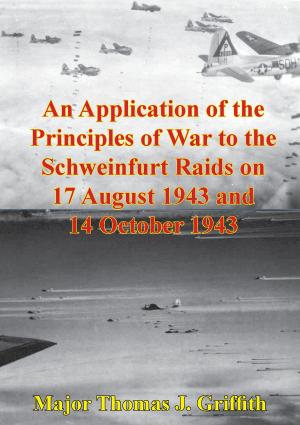

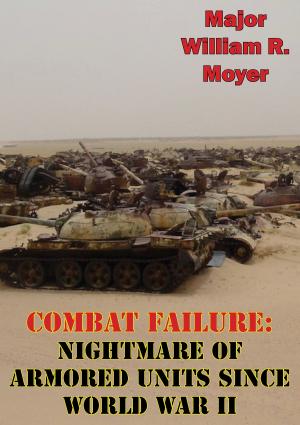
![Cover of the book Four Weeks In The Trenches; The War Story Of A Violinist [Illustrated Edition] by Lt.-Col. Alan M. Russo](https://www.kuoky.com/images/2014/june/300x300/9781782891956-5rc9_300x.jpg)
